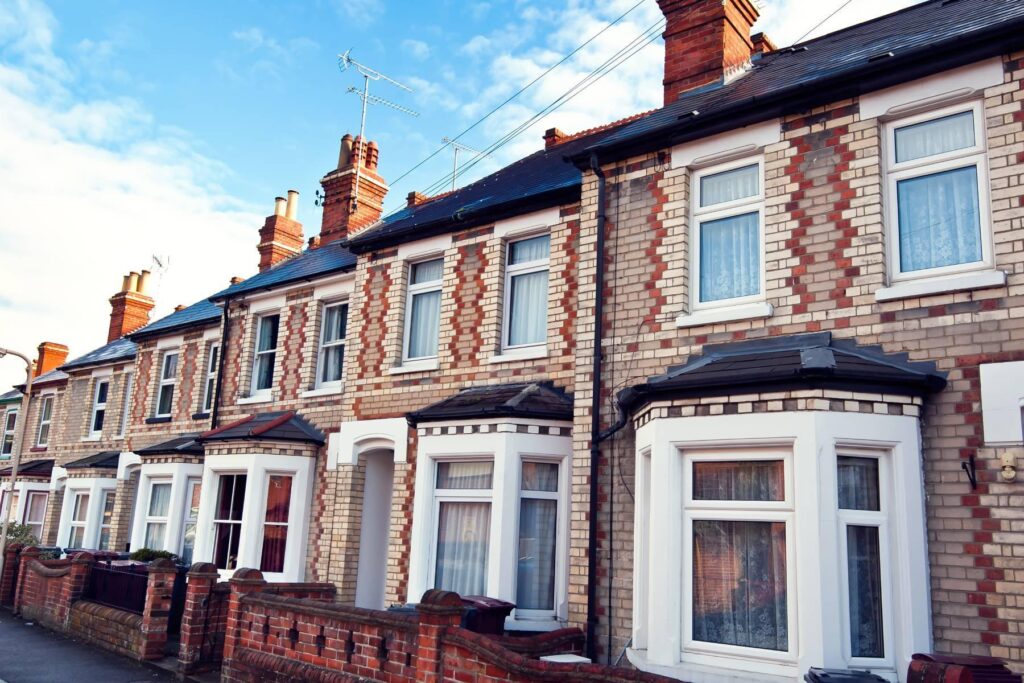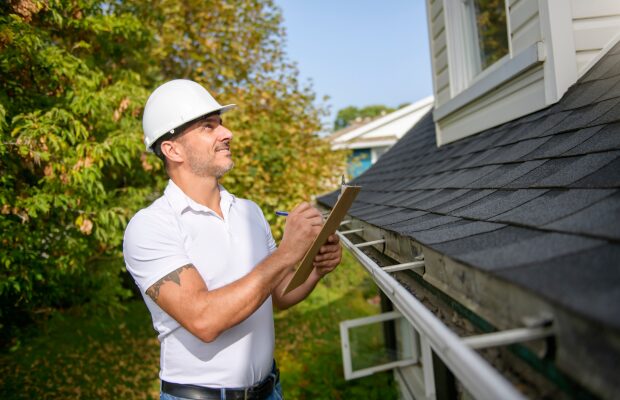Buying a home is all about making decisions.
And one of the biggest is often whether to buy a new-build or an old-build property.
In this guide, we’ll explain the differences between old-builds and new-builds, explore the pros and cons of each and reveal some great tips if you’re thinking of buying either…
What’s the difference between a new-build and an older property?
A new-build home is one that has never been lived in, whereas a property dubbed an ‘old-build’ is one that has had at least one owner.
While modern homes are offered referred to as ‘new-builds’, if they’ve been lived in, they would be classed as an existing home.
Is it better to buy a new build or an old house?
Whether it’s best to buy a new-build or an existing property will depend on your own needs and what you want from your next property.
There are a number of pros and cons to both new-builds and old-build homes and you should consider these against your own needs.
The pros and cons of buying a new-build house
New-build pros
• Energy efficiency – modern building techniques mean new-build homes are usually superbly insulated, with advanced double glazing and a modern, energy efficient heating system
• A builder’s warranty – new-build homes come with a developer’s warranty, usually for 10 years, meaning if anything goes wrong with your home, the builder has to fix it. However, these kinds of guarantees do tend to taper off after the first two years so bear that in mind
• More personalisation – buying a new-build, particularly if you purchase off-plan, often means you can have a say in the style of things like carpets, flooring, kitchens and bathrooms
• No chain – a new-build has no existing owner, so even if you have a property to sell, your chain ends with you, and this should mean there’s less chance of your transaction falling through
• Home buying schemes – schemes like First Homes and Help to Buy are available on new-build homes only, so properties like these are great options for first-time buyers who need some help getting on to the ladder
• Incentives – some developers will throw in incentives like covering your stamp duty, or upgrading your fixtures and fittings, when trying to sell you a new-build home
• New-builds are ‘new’ – a new-build home has never been lived in, meaning everything is brand new and unused. Not only that, a new-build is unlikely to require as much maintenance as an older home
New-build cons
• Space – new homes are often a little ‘crammed’ on to developments, as builders want to maximise their returns. That can mean some new-build homes suffer with overlooking, or parking problems
• Smaller rooms – compared with older homes, particularly period properties, new-build rooms are usually smaller. So, think about the internal space you need and your belongings before committing to a purchase
• Premium prices – because new-builds are brand new, developers often charge a premium and once you step foot inside, that premium disappears as the property is no longer ‘new’. This can mean that new-builds drop in value before they rise again over the long-term
• Build quality and snagging – While new-builds often use more modern building techniques, there are almost always problems once you move in. Sometimes this can be as simple as a minor leak or a door that won’t shut over a carpet, but undertaking a snagging survey is key to iron out any issues with your developer
• Build delays – if you’re buying a new-build home off-plan, i.e. before it’s actually been built, you could experience a delay to the build. This can have a knock-on effect with your mortgage offer, or if you’re selling your existing home
The pros and cons of buying an old house
Old-build pros
• Character – if character and history is important to you when buying a home, period properties offer both in spades. From decorative cornices and sash windows in Georgian homes to fireplaces and parquet flooring in Victorian and Edwardian properties, new-builds simply can’t match up when it comes to original features
• Size – older properties tend to have more internal and external space than new-build homes. So, if big bedrooms, a large garden or higher ceilings are on your wish list, you may be better off looking at a period home or one from the 1920s or 1930s
• You can see issues – although older homes often don’t come without problems, the major benefit of buying one is you can see what’s wrong. By having a survey done, you’ll be able to buy an existing property and be sure that everything is in order structurally, or pull out if it isn’t
• You can add value – new-build homes are often harder to add value to, as they are usually built for specific types of buyer. With an older property, you may be able to find untapped potential where you can add value, such as a large kitchen extension or a loft conversion
Old-build cons
• Long chains – when buying an existing property, it’s possible to get caught in a long sales chain and this can be both stressful, as well as heightening the potential of a collapse in the process
• High maintenance – older properties have been standing for longer and have had lots more owners than newer homes, so that often means they need more maintenance to keep them looking great and structurally sound
• Poorer energy efficiency – your energy bills may be higher in an older home, as these will often be less efficient than a new-build
• Renovation costs – when buying an older home, it’s less likely to be suited to you than a new-build. That could mean you have to spend additional money bringing it up to standard and making it work for you
• Wear and tear – older homes have often had dozens of owners and that means they may be more ‘beaten up’ due to people moving in and out. This can also require additional spending, especially if the property has issues with damp
The price of a new-build vs the price of an older home
According to research by DataLoft, the average price of a new-build property in 2020 was almost £55,500, or 22%, more than an existing home.
However, around one in eight property sales in the UK in 2020 was a new-build home, while half of homeowners surveyed said they would consider a new-build.
Period properties can also command a premium, however, with research from property portal OpenBrix showing Georgian properties can often command £100,000 more than the average UK property price.
Victorian and Edwardian properties, meanwhile, fetch 20% more than the UK average price.
Tips for buying an old-build home
1. Have a survey
Peace of mind is everything when you’re spending a huge amount of money buying a property.
A survey is a must when purchasing an older home as this will flag up any issues with the property before you commit to buying it.
And if your survey doesn’t raise any concerns, you’ll have that priceless peace of mind that your money is being spent on a solid investment.
2. Ask plenty of questions
Try to find out as much as you can about the property you’re buying before you commit.
Ask the estate agent about the seller’s reasons for putting it on the market and spend some time in the area, speaking to locals about what it’s like to live there.
Tips for buying a new-build home
1. Don’t be afraid to negotiate
Just because a property is new, that doesn’t mean you can’t negotiate on price in the same way you would if you were buying an existing home.
Even if your developer won’t budge on price, they may be prepared to offer another incentive to convince you to purchase.
2. Determine exactly what you’re getting
If you’re buying a new-build off-plan, there’s no property to look at because it won’t have been built.
So, ensure you’re clear with your developer on the fixtures and fittings and exactly what’s included in the purchase price.
Further reading…
• The true cost of moving home




